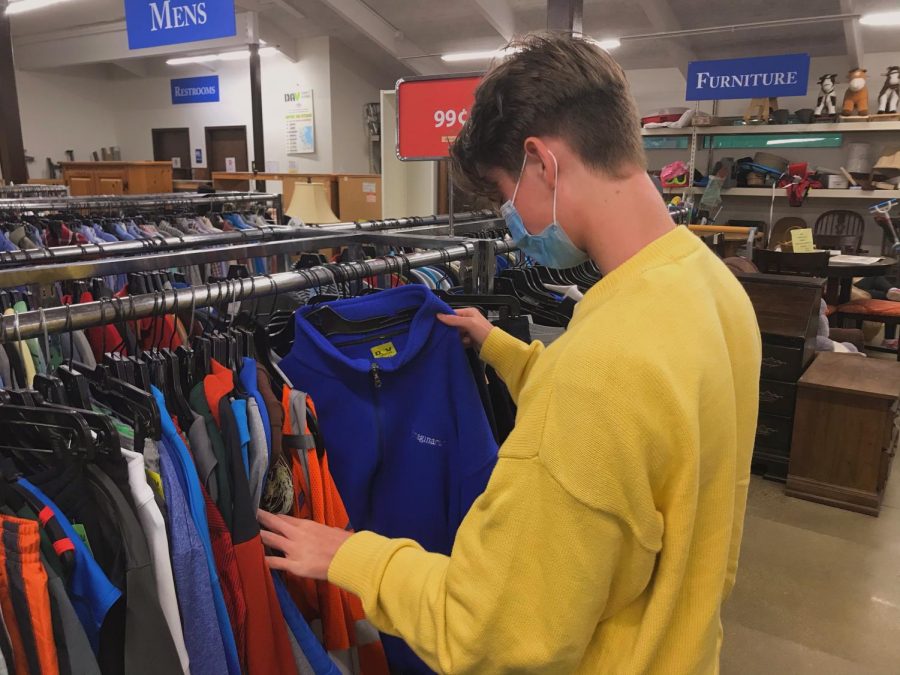Fast fashion calls for fast action
Junior Jacob Ritz browses some of the DAV’s clothing racks.
November 5, 2020
Close that tab of the $10 mom jeans to do the Earth a favor.
From the outside, fast fashion seems entirely convenient: get stylish, seasonal clothes for cheap. Unfortunately, almost every aspect of fast fashion proves corrupt and selfish, with multiple underlying misconducts.
In order to produce such inexpensive clothes, industries exploit environmental and human resources. These stores such as Shien, Zaful, Forever 21, H&M, Fashion Nova, and so many more continue to profit daily due to the lack of knowledge of their misguided forms of production.
According to The state of Fashion, fast fashion accounts for up to 35 percent of the ocean’s microplastics. With more than a quarter of the ocean already contaminated and a constant strain on fresh water, no possible outcome of a continuation of these industries can end well.
It takes 2,700 liters of water to make one shirt, enough water to keep a single person hydrated for 900 days. Water is arguably the most important resource on Earth, and yet the fashion industry completely degrades and abuses the planet’s supply.
The mistreatment doesn’t stop in the oceans, but transcends onto humans. Held in systemic poverty, an estimated 98 percent of workers in the fashion industry do not make a livable wage. An average garment worker in Bangladesh might make 33 U.S. cents per hour, not nearly enough to provide even the most basic needs.
Purchasing clothes from ethical, clean stores like thrift stores or boutiques not only ease your conscience, but help put an end to fast fashion and its destructive industries.


